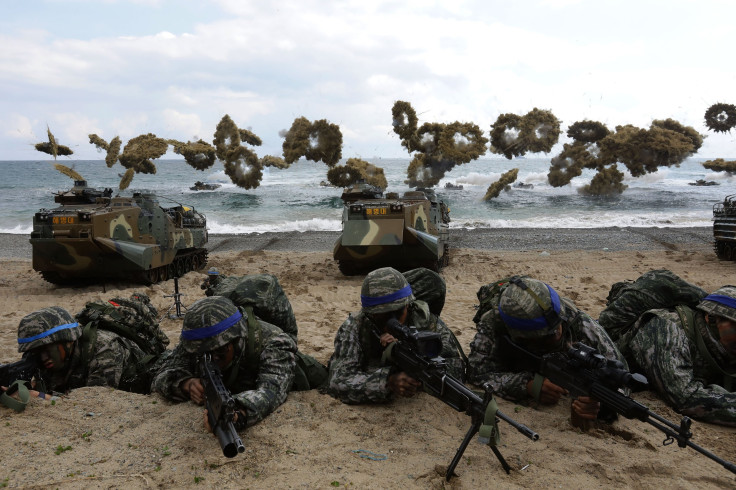South Korea: US Did Not Discuss Joint Military Drills Resumption

Hours after Secretary of Defense James Mattis told reporters Tuesday that the United States was planning to resume joint military exercises with South Korea, Seoul's presidential office Cheong Wa Dae announced it had not been briefed of any such plans from the Pentagon.
“As of now, the issue has not been discussed between South Korea and the United States,” Cheong Wa Dae spokesman Kim Eui-kyeom told a daily press briefing, Yonhap News reported. “It is an issue that should be discussed and decided by South Korea and the U.S. while reviewing the progress in the denuclearization of North Korea.”
This meant South Korea was given no prior heads up of Mattis’ statement.
“We took the step to suspend several of the largest exercises as a good-faith measure coming out of the Singapore summit. We have no plans at this time to suspend any more exercises," the defense secretary said Tuesday.
Mattis’ latest statement was a departure from his remarks following the June summit between President Donald Trump and North Korean leader Kim Jong Un. At the time, the defense secretary said, as a sign of good faith toward Pyongyang, the administration announced the U.S.-South Korea war games will be "indefinitely suspended.”
Trump, following the summit, said at a press briefing, “We will be stopping the war games, which will save us a tremendous amount of money unless and until we see the future negotiation is not going along like it should. But we’ll be saving a tremendous amount of money. Plus, I think it’s very provocative.”
Incidentally, not unlike the present scenario, Trump’s announcement of a plan to remove the 28,500 American troops stationed in Seoul and to halt the joint military exercises came as a surprise to South Korea’s department of defense, who had not been briefed about the POTUS’ decision beforehand.
“At this current point, there is a need to discern the exact meaning and intent of President Trump’s comments,” Seoul’s Defense Ministry said at the time.
Even the U.S. forces stationed at South Korea admitted the Department of Defense or the Indo-Pacific Command had given them “no updated guidance on the execution or cessation of training exercises.”
At the same time, the executive office of South Korean President Moon Jae-in told their state media outlet Yonhap News the suspension of joint military drills may be a necessary step in urging North Korea to enter denuclearization talks.
Mattis, on the other hand, hinted at the time the halting of the joint military drills was more of a test-run and heavily depended on the negotiations with North Korea.
"I do not have a crystal ball right, now. Let's see how the negotiations go," Mattis said. "Let's let the diplomats go forward. We all know the gravity of the issue they are dealing with, and we will deal with supporting the diplomats as I have said repeatedly."
However, with diplomatic efforts with North Korea not progressing as rapidly as the U.S. hoped, the Trump administration is considering cutting back on the concessions it had made with the understanding that Pyongyang will be implementing a complete denuclearization sooner than later.
© Copyright IBTimes 2024. All rights reserved.












